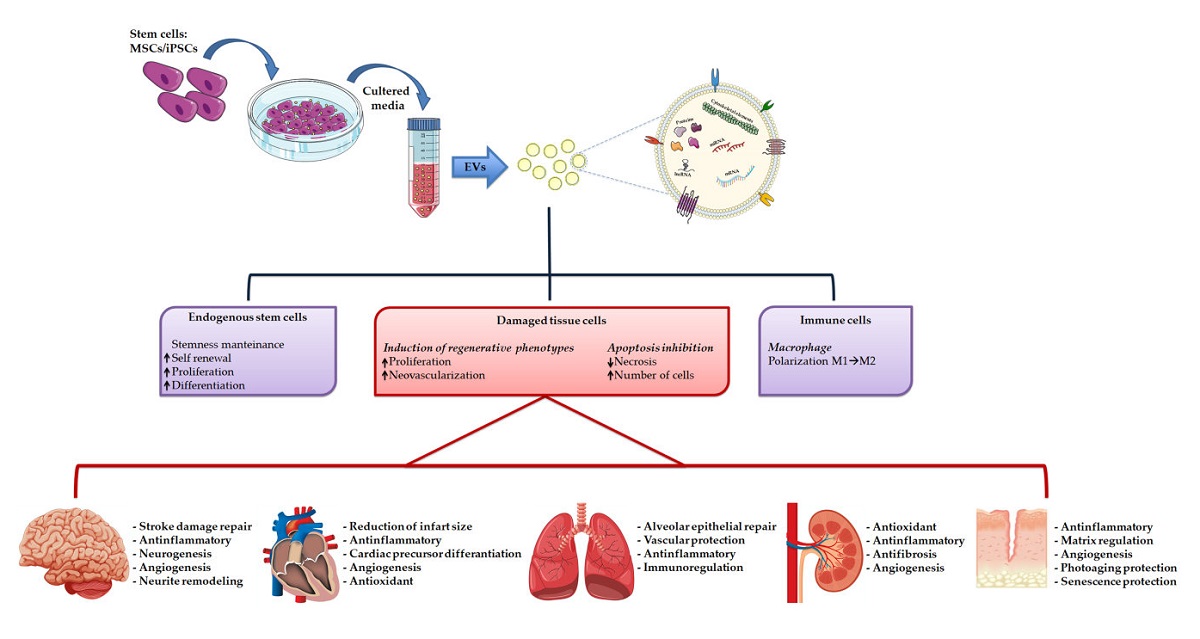Regenerative medicine aims to repair damaged or missing cells, tissues or organs for the treatment of various diseases, poorly managed with conventional drugs and medical procedures. To date there are different approaches to obtain these results. Multimodal regenerative methods include transplant of healthy organs, tissues, or cells, body stimulation to activate a self healing response in damaged tissues, as well as the combined use of cells and bio-degradable scaffold to obtain functional tissues. Certainly, stem cells and derived products are promising tools in regenerative medicine due to their ability to induce de novo tissue formation and/or promote tissue and organ repair and regeneration. Currently, several studies have shown that the beneficial stem cell effects in damaged tissue restore are not depending on their engraftment and differentiation on the injury site, but rather to their paracrine activity. It is now well known that paracrine action of stem cells is due to their ability to release Extracellular Vesicles (EVs). EVs play a fundamental role in cell-to cell communication and are directly involved in tissue regeneration. In the present review, we tried to summarize the molecular mechanisms trough which EVs carry out their therapeutic action and their possible application for the treatment of several diseases.

